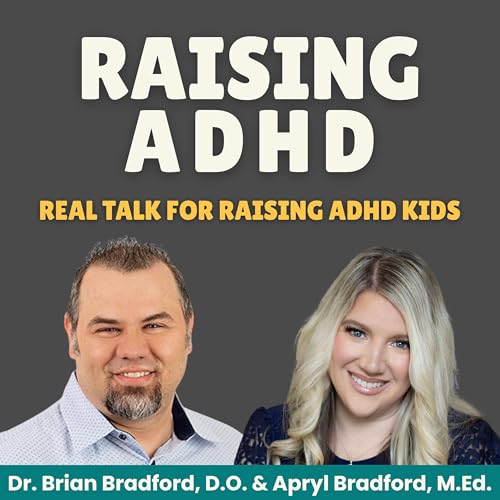When most people hear ADHD, they picture a wiggly kid who can’t sit still, blurts out answers, or zones out in class. But here’s the thing: that’s just the tip of the iceberg.
In our very first episode of Raising ADHD, we’re pulling back the curtain on what ADHD really is, and what it isn’t.
Spoiler: it’s not just about attention or hyperactivity. ADHD is actually an executive function disorder that impacts emotional regulation, time management, working memory, sleep, and so much more.
As a former teacher and ADHD mom (Apryl) and a child & adolescent psychiatrist who also lives with ADHD (Brian), we’re here to bust through the misconceptions, share what’s really going on under the surface, and give you tools you can use right away at home and in the classroom.
In this episode, you’ll learn:
- 🎯 Why the name ADHD is misleading, and what it should really be called
- 🧊 The ADHD “iceberg”: what’s visible vs. the hidden challenges most people miss
- 💥 How emotional dysregulation, low frustration tolerance, and rejection sensitivity dysphoria show up in everyday life
- ⏰ Why time blindness and working memory struggles impact everything from homework to home routines
- 🛑 The heartbreaking link between ADHD, self-esteem, school struggles, and long-term outcomes (like dropout rates and anxiety)
- 👩🏫 Why teachers often feel underprepared—and what parents and educators need to know about supporting ADHD kids in the classroom
Why this matters:
ADHD is one of the most misunderstood childhood diagnoses—yet it affects nearly 1 in 9 kids. Left untreated or misinterpreted, it doesn’t just make school harder; it impacts friendships, family dynamics, and even long-term mental health. But with the right understanding and support, ADHD kids can thrive.
Resources + Next Steps:
- Subscribe to Raising ADHD so you don’t miss next week’s episode on the ADHD diagnosis process: what it looks like, what to expect, and how to talk to your doctor.
- Share this episode with another parent or teacher who needs to hear the real truth about ADHD.
 20 mins
20 mins 13 mins
13 mins 23 mins
23 mins 27 mins
27 mins 22 mins
22 mins 26 mins
26 mins 17 mins
17 mins 2 mins
2 mins

